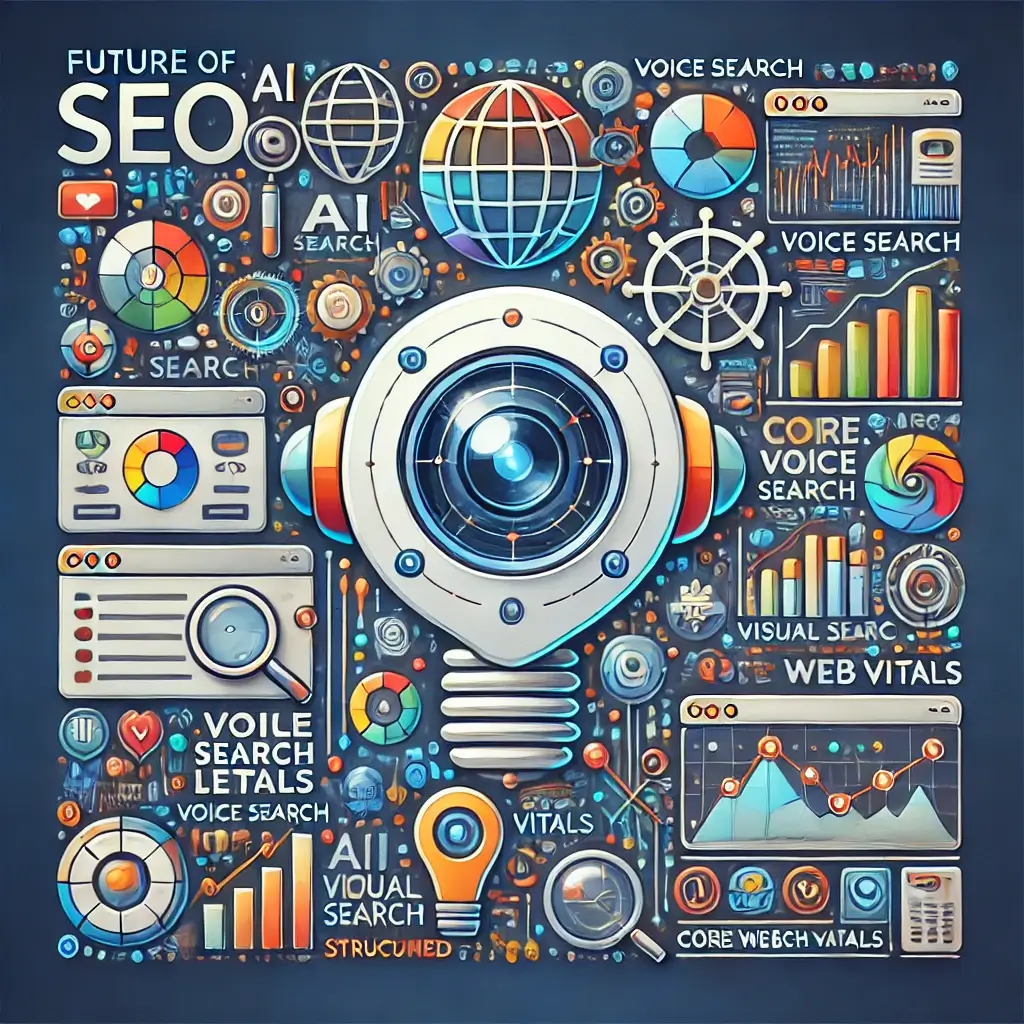The AI Revolution in Search
Artificial Intelligence isn’t just a buzzword in SEO – it’s fundamentally changing how search engines understand and rank content. Google’s BERT and MUM algorithms are prime examples of how AI is enabling more nuanced language understanding.
Advanced AI Optimization Strategies
To optimize for AI-driven search, we need to move beyond traditional keyword optimization. Instead, focus on creating content that thoroughly covers a topic from multiple angles. Use natural language processing tools to analyze your content’s semantic richness and identify areas for improvement.
Implementing Topic Clustering
Implement topic clustering in your content strategy. This involves creating a pillar page that broadly covers a main topic, with multiple related pages diving deeper into specific aspects. This approach helps AI algorithms understand the breadth and depth of your expertise.
Voice Search: The New Frontier
Voice search optimization is more than just targeting long-tail keywords. It’s about understanding the conversational nature of spoken queries and the context in which they occur.
Advanced Voice Search Strategies
Implement schema markup aggressively. This structured data helps search engines understand the context of your content, making it more likely to be served as a voice search result. Focus on question optimization. Analyze your search query reports to identify question-based searches, then create content specifically designed to answer these questions concisely. Use tools like AnswerThePublic to uncover question patterns in your niche.
Core Web Vitals: The Technical Side of SEO
While content remains king, the technical aspects of SEO are becoming increasingly crucial. Core Web Vitals are now a ranking factor, and they’re likely just the beginning of Google’s push towards better user experience metrics.
Advanced Technical Optimization Techniques
Go beyond basic optimization. Implement advanced techniques like:
- Lazy loading for images and videos
- Critical CSS inlining
- Service workers for offline functionality and faster repeat visits
- HTTP/2 or HTTP/3 protocols for faster resource loading
Monitor your Core Web Vitals in real-time using tools like Google’s Web Vitals Extension. Set up custom alerts in Google Analytics to notify you of any significant drops in performance.
E-A-T: Building Digital Authority
Expertise, Authoritativeness, and Trustworthiness (E-A-T) have become crucial, especially for YMYL (Your Money or Your Life) topics. But E-A-T isn’t just about having good content – it’s about proving your expertise to search engines.
Advanced E-A-T Strategies
Implement entity-based SEO. This involves clearly defining and connecting the entities (people, places, things) mentioned in your content. Use schema markup to explicitly state relationships between entities. Develop a robust internal linking strategy that establishes topical authority. Create content hubs that thoroughly cover all aspects of a topic, with clear hierarchical relationships between pages.
Leveraging HARO for Authority Building
Leverage HARO (Help a Reporter Out) to gain high-quality, contextually relevant backlinks from authoritative news sources. This not only improves your link profile but also establishes you as an expert source in your field.
The Rise of Visual Search
As Google Lens and other visual search tools gain popularity, optimizing for visual search is becoming increasingly important.
Advanced Visual Search Optimization Techniques
Implement visual search optimization techniques:
- Use descriptive alt text for images, including relevant keywords and entity names.
- Optimize image file names with descriptive, keyword-rich names.
- Create image sitemaps to help search engines discover and index your images more effectively.
- Use object recognition tools to identify entities in your images and ensure your surrounding content contextually relates to these entities.
AI-Generated Content and SEO
The rise of AI content generation tools presents both challenges and opportunities for SEO professionals.
Strategic Use of AI in Content Creation
Instead of fearing AI-generated content, use it strategically. Employ AI tools for content ideation, outlining, and first drafts. Then, leverage human expertise to edit, refine, and inject unique insights that AI can’t provide. Implement a hybrid content creation model where AI assists in scaling content production, while human experts ensure quality, add personal experiences, and provide cutting-edge insights.
Preparing for the Cookieless Future
With the phasing out of third-party cookies, SEO and digital marketing strategies need to adapt.
Advanced Data Collection Strategies
Focus on building first-party data. Implement strategies to encourage user sign-ups and logins. Use this data to create highly personalized content experiences that keep users engaged and coming back for more. Explore federated learning techniques that allow you to gain insights from user behavior without compromising privacy.
Conclusion: Embracing Complexity
The future of SEO is complex, multifaceted, and exciting. Success in this evolving landscape requires a holistic approach that combines technical expertise, content mastery, and a deep understanding of user intent and behavior. As SEO professionals, we must continually adapt our strategies, embracing new technologies while remaining focused on providing genuine value to users. The fundamentals of great content and user experience will always be important, but how we achieve and measure these goals will continue to evolve. Stay curious, keep experimenting, and never stop learning. The future of SEO belongs to those who can navigate its complexities while keeping sight of the ultimate goal: connecting users with the information they need.
